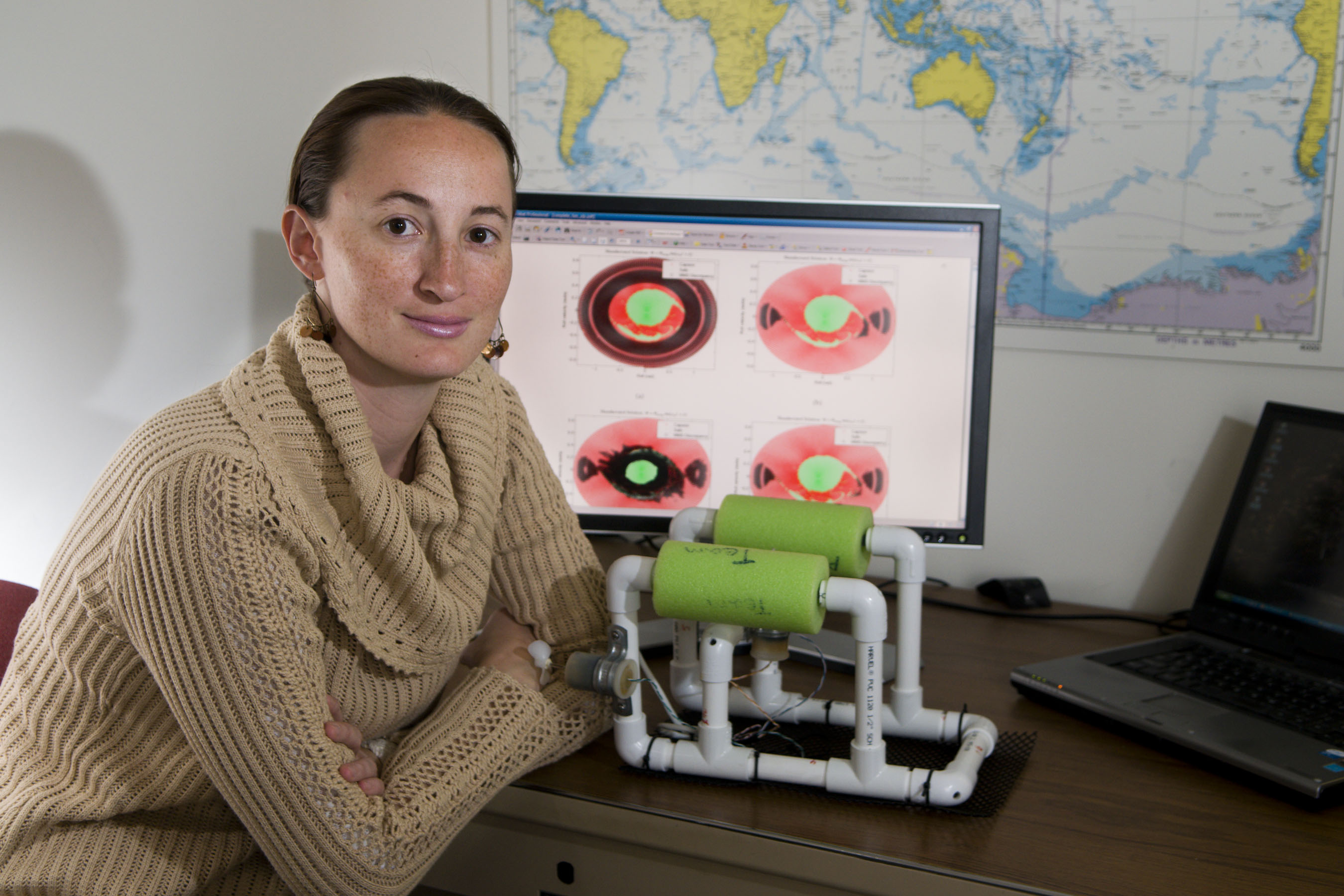Engineering professor Leigh McCue-Weil receives prestigious Office of Naval Research Presidential Award

The White House announced on July 9 that Leigh McCue-Weil, an assistant professor in the Virginia Tech College of Engineering's Department of Aerospace and Ocean Engineering received a Presidential Early Career Award for Scientists and Engineers (PECASE).
The PECASE Award is the highest honor bestowed by the U.S. government on outstanding scientists and engineers beginning their independent careers. The awards are conferred annually at the White House following recommendations from participating agencies.
McCue-Weil was nominated by the Office of Naval Research (ONR), which provides grant support for three years through its Young Investigator program (YIP). McCue has also received an National Science Foundation Faculty Early Career Development program grant (CAREER). Both the CAREER and the YIP are among the nation’s most prestigious grants awarded to creative young researchers who have the potential to become leaders in their fields.
McCue-Weil is developing tools to help ship designers better understand ship motions and, thus, help prevent capsizing and other dangers resulting from vessel instabilities.
One of the primary objectives of McCue-Weil’s research is to develop an understanding of large-amplitude ship motions. “Each year, instabilities claim lives, cargo, and craft, often in vessels meeting or exceeding current safety regulations,” McCue-Weil said. For example, commercial fishing has the highest fatality rate among all occupations in the United States, according to the Bureau of Labor Statistics.
“By arriving at mathematical approximations for the boundary between stability and capsize, we will have a better physical understanding of vessel behaviors,” she said.
Another objective is to validate computer simulations of nonlinear large-amplitude ship motions, which can lead to instability. “Ship instabilities are often viewed as a binary issue — either a vessel will capsize or won’t capsize,” McCue said. “So it’s important to ensure that a computer simulation is more accurate and physically relevant than something like a coin toss.”
Also, McCue-Weil aims to develop on-board, real-time motion prediction tools. “The ultimate goal of this component of the research is to provide ship captains with warning of imminent dangers to their craft for a range of dynamic stability phenomena,” she said.
McCue is also expanding her research into the use of smoothed particle hydrodynamics, a specific form of computational fluid dynamics, to simulate fluid-structure interactions and hydrodynamic phenomena involving flexible bodies or large deformations.
McCue-Weil, who joined the Virginia Tech faculty in 2005, was selected as an American Society for Engineering Education/Office of Naval Research summer faculty researcher for 2005 and 2006. She received a College of Engineering Dean’s Award for Outstanding New Assistant Professor in 2007.
"Leigh has clearly distinguished herself through excellence in research, and she has also been remarkably productive in innovative teaching as well as in the college's outreach to our future students," said Christopher Hall, professor and head of the aerospace and ocean engineering department.
McCue completed her Ph.D. and master’s degree in naval architecture and marine engineering, as well as another master’s in aerospace engineering, at the University of Michigan, and earned a bachelor’s degree in mechanical and aerospace engineering at Princeton University.




